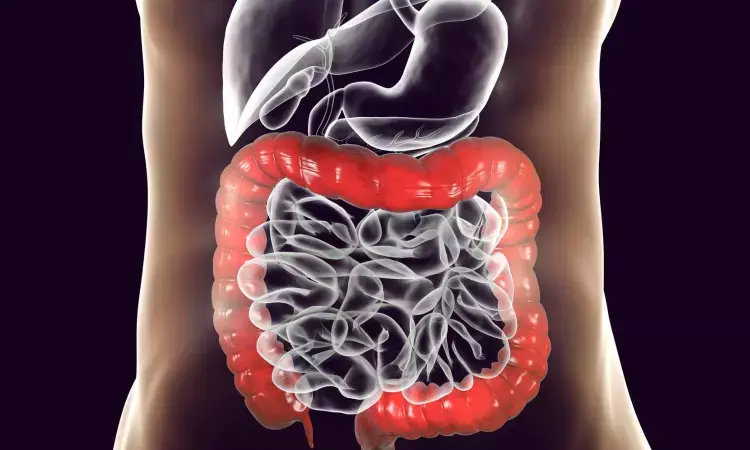- Home
- Medical news & Guidelines
- Anesthesiology
- Cardiology and CTVS
- Critical Care
- Dentistry
- Dermatology
- Diabetes and Endocrinology
- ENT
- Gastroenterology
- Medicine
- Nephrology
- Neurology
- Obstretics-Gynaecology
- Oncology
- Ophthalmology
- Orthopaedics
- Pediatrics-Neonatology
- Psychiatry
- Pulmonology
- Radiology
- Surgery
- Urology
- Laboratory Medicine
- Diet
- Nursing
- Paramedical
- Physiotherapy
- Health news
- Fact Check
- Bone Health Fact Check
- Brain Health Fact Check
- Cancer Related Fact Check
- Child Care Fact Check
- Dental and oral health fact check
- Diabetes and metabolic health fact check
- Diet and Nutrition Fact Check
- Eye and ENT Care Fact Check
- Fitness fact check
- Gut health fact check
- Heart health fact check
- Kidney health fact check
- Medical education fact check
- Men's health fact check
- Respiratory fact check
- Skin and hair care fact check
- Vaccine and Immunization fact check
- Women's health fact check
- AYUSH
- State News
- Andaman and Nicobar Islands
- Andhra Pradesh
- Arunachal Pradesh
- Assam
- Bihar
- Chandigarh
- Chattisgarh
- Dadra and Nagar Haveli
- Daman and Diu
- Delhi
- Goa
- Gujarat
- Haryana
- Himachal Pradesh
- Jammu & Kashmir
- Jharkhand
- Karnataka
- Kerala
- Ladakh
- Lakshadweep
- Madhya Pradesh
- Maharashtra
- Manipur
- Meghalaya
- Mizoram
- Nagaland
- Odisha
- Puducherry
- Punjab
- Rajasthan
- Sikkim
- Tamil Nadu
- Telangana
- Tripura
- Uttar Pradesh
- Uttrakhand
- West Bengal
- Medical Education
- Industry
Probiotic could block absorption of toxic metal like mercury and help absorb useful ones like iron

USA: Microbes in the human gut could be harnessed to block the absorption of toxic metals like mercury and help the body absorb useful nutritional ones like iron, according to new research presented at ASM Microbe 2023, the American Society for Microbiology annual meeting.
Methylmercury, a neurotoxin, is particularly worrisome, said Daniela Betancurt-Anzola, a graduate student at Penn State who led the new study. It has various toxic effects and is detrimental to neurological development during pregnancy and childhood, particularly in communities heavily reliant on fish-based diets. Most methylmercury exposure is through fish or shellfish, but it can also show up elsewhere. “It accumulates in living things, plants and fish,” she said. “We eat those things, and it accumulates in us.”
Betancurt-Anzola and her colleagues first analyzed thousands of genomes from gut bacteria, focusing on genetic determinants associated with the ability to interact with metals. Many genes are known to be connected to metal resistance, she said. Still, the group focused on those that enable bacteria to convert dangerous mercury to less toxic forms and absorb the heavy metal.
To understand how those genes function and impact the host, the team used metagenomic sequencing to study how human and mouse microbes responded to mercury exposure. Finally, the investigators used those insights to develop a probiotic specifically designed to detoxify a harmful type of mercury often found in the human diet. They inserted genes from Bacillus megaterium bacteria, which is known to be highly resistant to methylmercury, into strains of Lacticaseibacillus, a genus of lactic acid bacteria.
“It’s a perfect probiotic for this because we have previously shown it works in humans, and now we are engineering it to make it even better,” Betancurt-Anzola said. “It is inside the gut; it grabs the methylmercury, then goes out.”
For now, she said, the group is focused on understanding how gut microbes interact with mercury, but they plan to investigate other metals as well. Their ultimate goal is to develop interventions that could help reduce levels of dangerous metals-like mercury-and boost absorption of those that the human body needs. “We are interested in studying how the entire microbial community reacts to different metals,” Betancurt-Anzola said.
Reference:
A probiotic could help mitigate mercury absorption in the gut, American Society for Microbiology, Meeting, ASM Microbe 2023.
Dr Kamal Kant Kohli-MBBS, DTCD- a chest specialist with more than 30 years of practice and a flair for writing clinical articles, Dr Kamal Kant Kohli joined Medical Dialogues as a Chief Editor of Medical News. Besides writing articles, as an editor, he proofreads and verifies all the medical content published on Medical Dialogues including those coming from journals, studies,medical conferences,guidelines etc. Email: drkohli@medicaldialogues.in. Contact no. 011-43720751


